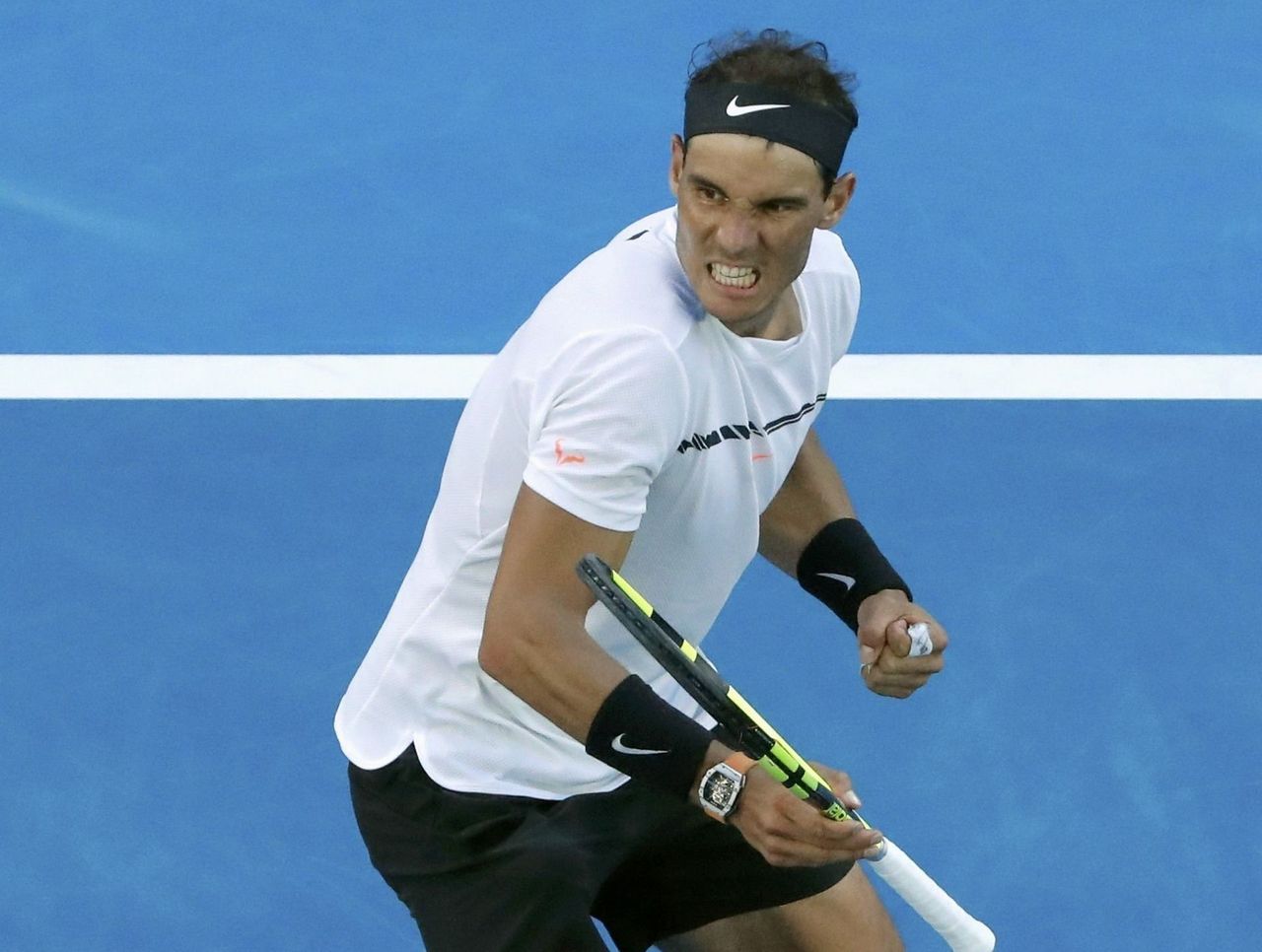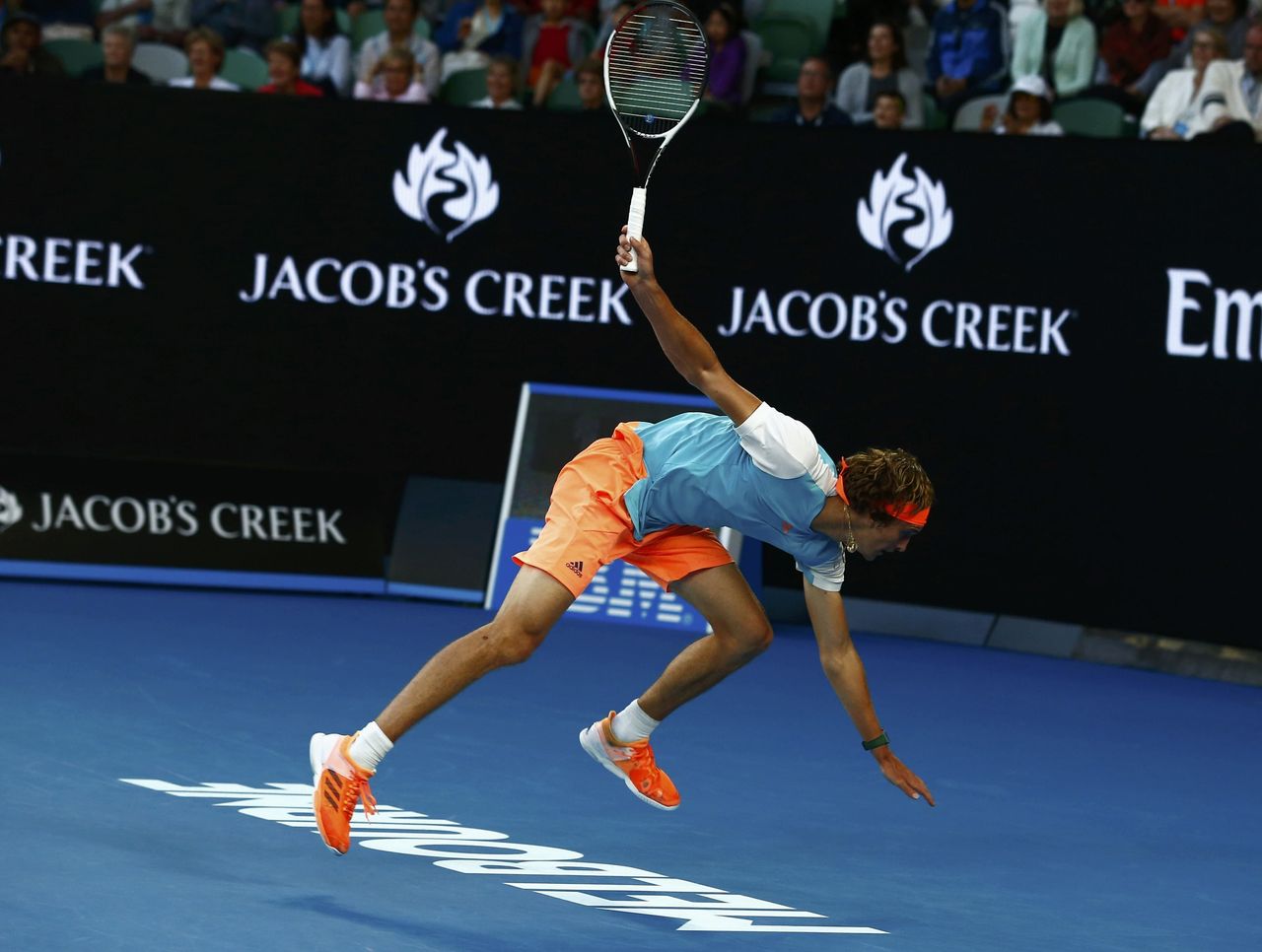Nadal exorcises 5th-set demons in much-needed triumph over Zverev
Rafa Nadal needed a win like this.
It wasn't just about beating powerhouse Alexander Zverev - no small feat in itself, despite what the 19-year-old's birth certificate might suggest - or cracking the Round of 16 for just the second time in the past seven Slams. It wasn't just about Nadal shaking off the cobwebs from his late-fall hiatus and finding his form at his first meaningful tournament since October. This was about Nadal proving something essential to himself; about reminding himself who he was, and is, and may yet be.

For a moment, it looked as though the match would end the way each of the Spaniard's last three Grand Slam losses had ended: Fifth set, Nadal gets up an early break, promptly has it snatched back, then nerves kick in, he plays tighter and tighter as his opponent plays bolder and bolder, and he's ultimately hit off the court by a more powerful player who's more willing to take big cuts in big moments. That was the script for his third-round loss to Fabio Fognini at the 2015 US Open, his first-round loss to Fernando Verdasco at this same tournament last year, and his fourth-round defeat at the hands of Lucas Pouille in Flushing Meadows this past September.
Zverev is better than all three of those guys, and is in many ways a uniquely bad matchup for Nadal. At 6-foot-6, he has a huge pocket from which he can unload, and Nadal's topspin-laden ball is always at risk of kicking up right into his wheelhouse. For someone his size, he is astonishingly fluid, and he possesses frighteningly easy power. He punishes the kind of short balls that have plagued Nadal over the past three years and dominates the middle of the court. All of these things were laid bare in the first three sets, as the young German took a two-sets-to-one lead.
Zverev's cross-court backhand is the stuff dreams are made of. Or, in Nadal's case, nightmares. Try as he might, the 14-time Slam champ couldn't seem to stay away from that wing, either because he was too hesitant to pull the trigger and take his forehand up the line, or because Zverev's depth and power forced him to prioritize survival over tactics. To wit, here's how the third set was clinched:
#Zverev pic.twitter.com/QJ09hOqJz7
— doublefault28 (@doublefault28) January 21, 2017
Nadal made some tactical adjustments in the fourth set, primarily using the slice more to keep the ball low and junk up Zverev's rhythm. But the most important adjustment he made was to his mentality. He amped up his aggressiveness, making a more concerted effort to open up the court with daring, inside-out forehands. And he started to relentlessly attack Zverev's greatest weakness: his net game.
Nadal - who knew firsthand just how debilitating that weakness could be - would draw the lanky teenager forward with drop shots, then either hit dipping passing shots that forced Zverev to volley from his shoetops, or challenge him by pounding the ball right at him. Nadal was mostly patient. Instead of going for low-percentage clean-winner passes off the bat, he'd make Zverev hit one, two, three volleys, opening up a bit more daylight each time, until finally finding the angle he needed.
On a crucial point in the fourth, one that could've given Zverev a break point to get back on serve, Nadal again pulled him forward. But this time, there was no methodical weakness-probing, just a leaping backhand overhead winner that took a special combination of athleticism, touch, and chutzpah.
Nothing tentative about this:
pic.twitter.com/zwXMemjJeE#Nadal #AusOpen ✌🏻❤
— خالد العتيبي (@NFC_LFC) January 21, 2017
On the surface, it seemed to bode well, and Nadal would indeed go on to close out the set in comfortable, confident fashion. But whether he'd be able to ward off his fifth-set demons - if and when things got dicey in the decider - was still very much an open question.
And so it was that the first four games followed the familiar formula. Nadal broke Zverev in the opening game, consolidated with a hold, and looked ready to sprint through the set and into the fourth round. But then Zverev held, and then Zverev broke, and suddenly it felt like the same script was playing out again before our eyes, with Nadal stuck in an unbreakable loop.
The match turned on one point in the following game. Nevermind that it was a deuce point Zverev actually won to put himself on the cusp of a 3-2 lead; Nadal bled him dry for it. He absorbed Zverev's pace, went sideline to sideline like a man possessed, and put ball after ball back into play, turning a point Zverev could've won five times over into a brutal, 37-stroke exchange before mercifully netting a backhand.
Zverev won the battle, but when he started cramping and staggering around by the back wall immediately afterward, it was clear he was going to lose the war. He limped to the baseline, went for a huge first serve that Nadal put back in play, then went for an equally desperate cross-court forehand to try put the game away and get to his chair as soon as possible.

The line judge's "out" call was his death knell. Nadal broke, and didn't lose another game. He saw a wounded beast, and put it out of its misery. He attacked Zverev's legs, ruthlessly yo-yoing him around the court with an array of sliding serves out wide, acute-angled backhands, and droppers followed by lobs. Side to side, forward and back, unrelenting. It was vintage Nadal bully tennis. It was mean, mean, mean.
A couple years ago, nothing about this would've felt surprising. The fifth set was Nadal's domain: the point at which he lorded his physical superiority over his opponents, intimidated them into submission, and made victory appear out of a hat. At a certain point, the spell was broken, and the scales tipped the other way. He got served so much of his own medicine he was liable to choke.
Not on Saturday, though. Even if the outcome was determined as much by Zverev's physical breakdown as anything else, there was still a kind of electric thrill in seeing Nadal rediscover his killer instinct.
Don't be fooled by Zverev's youth, inexperience, or ho-hum world ranking, either. He's a monster, and this was a monstrous win for Nadal. Whether it definitively restores his confidence and proves a launching pad to greater things obviously remains to be seen, but for now, that's immaterial. For a night, at least, Rafa got to remember what it felt like to be Rafa.